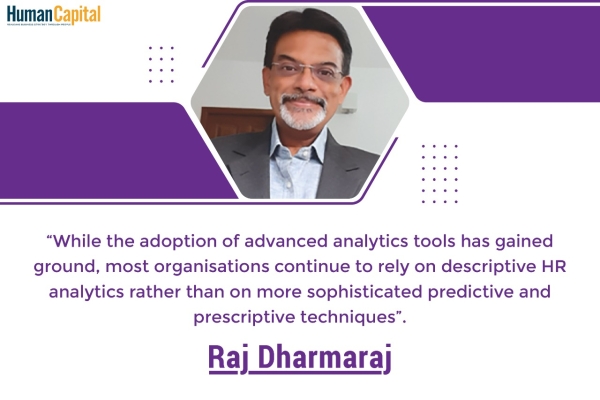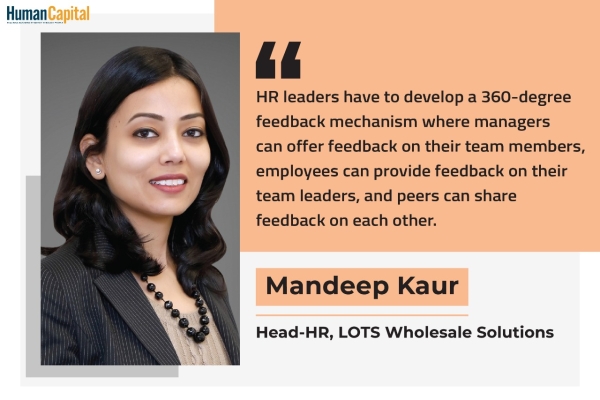
Managing employee engagement in the new world order - a long term reality
The rapid spread of COVID-19 (coronavirus) has made strong negative effects on both human health and the economy. With an avalanche of conversations today about adapting to the new unknown, it’s clear that many organisations, and the people that work in them, foresee an uncertain environment now and into the future.
Many employees are working remotely for the first time in their careers, whether they prefer it or not. Many parents are struggling with childcare needs and balancing personal and professional responsibilities. The boundary between work and home has disappeared.
Rapid changes have put a burden on organisational leaders to lead through the challenges of uncertainty. During such a critical time, managing employee engagement and productivity will be key for companies to navigate this crisis successfully.
The fact is that the reality of remote working is going to stay longer than expected or planned. A large IT organisation has already declared that even when the things normalise, they plan to have only 25% of workforce working the way it was earlier. So, how do organisations formulate their plans to be successful going forward.
Mastering organisational transformation – why being a change master matters
We used the Willis Towers Watson’s HPEX (High Performance Employee Experience) model to study organisations that went through large scale transformations
Willis Towers Watson research found that Change Masters (companies that successfully implement transformation agenda) beat sector benchmarks on financial performance whereas the other transition companies lagged. There is a strong story of key Financial Performance parameters and their gap in percentage from sector averages which can guide organisations in managing through this transition.
.png)
Additionally, vis-à-vis other companies, Change Masters promote a more inspiring vision, help employees understand how to contribute and then reward contribution to that end in a much better way.
.png)
The most significant difference between companies struggling to transform and those most effective at managing change are in their ability to Drive (26%), Inspire (25%) and build a culture to Collaborate (22% pts difference).
Lessons for us in the COVID-19 world
Taking the learnings from the research and adapting it to the current situation, from an employee experience perspective, actions that organisations should take to navigate this crisis can be categorised as - in the “immediate term” (as they manage through the crisis), in the “near term” (as they look at stabilising operations) and over “mid-term” (as they start operating post the COVID-19 period).
Managing through the crisis – Focus on essentials
- Ensure employee safety and wellbeing.
- Enable the employees to connect, collaborate, engage. Ensure that there is adequate communication infrastructure to support the same.
- Keep employees informed through leadership led regular and transparent communication. It is critical that during times of uncertainty, employees see their leaders not as “heroes,” but as real humans who are emphatic.
- Implement an agile employee listening strategy. Keep the listening process on and respond in an agile manner to what you hear.
Restoring Stability - emphasise
- Articulate the new way of working. Involve employees in designing new ways of working for their respective domains.
- Be honest, transparent and respectful in your communication. Even if the communication is difficult, e.g. reduction in compensation or in manpower, communicate the rationale.
- Keep employees connected, informed and feeling supported through regular and transparent communication (e.g., business outlook and strategy, information and education, accessing resources).
- Build forums for supportive and engaging employee collaboration, inclusion and a feedback collection mechanism.
Operating post-crisis – excel
- Lead with purpose. Paint the future and inspire the employees with the vision of future. Create awareness around how the organisation plans to reorient and respond to this challenge in the medium term.
- Communicate the revised direction.
- Invest in developing the capabilities of future – people and infrastructure to support the new business model of working.
- Personalise employee communications covering all aspects of work and total rewards and it gets re-aligned to the new direction and expectation from each employee.
- Continue to enable leaders and managers to drive a healthy company mindset: dignity, safety, inclusion, wellbeing and innovation.
In this time of unprecedented change, a challenge can quickly become an opportunity. Leaders and organisations who invest this time in enriching their culture– being people first, being open to change, foster collaborative thinking and approach will emerge as change masters
.jpg)
Rajul Mathur is the Consulting Head – Talent and Rewards India at Willis Towers Watson.

Paresh Rajgarhia is the Director – Talent and Rewards India at Willis Towers Watson.
Do you look forward to permanently working from home after the pandemic subsides?
Trending
-
SBI General Insurance Launches Digital Health Campaign
-
CredR Rolls Out 'Life Happens' Leave For Its Employees
-
Meesho Announces 30-Week Gender-Neutral Parental Leave Policy
-
Microsoft Unveils Tech Resilience Curriculum To Foster An Inclusive Future
-
60% Indian Professionals Looking For Job Change Due To COVID: Survey
-
SpringPeople And Siemens Collaborate For Digital Transformation Push
-
86% Professionals Believe Hybrid Work Is Essential For Work Life Balance: Report
-
Almost 1 In Every 3 People's Personal Life Affected Due To Work Stress
-
Meesho Rolls Out Reset And Recharge Policy For Employees
-
80% Of Talent Leaders & Academics Say Pandemic Changed Skill Needs For Youth: Report
-
Hero Electric Rolls Out 'Hero Care' Program For Employees
-
Human Capital In Collaboration With ASSOCHAM Hosts Virtual Conference
-
IKEA India, Tata STRIVE Collaborate To Create Employability And Entrepreneurship Opportunities
-
SAP India, Microsoft Launch Tech Skilling Program for Young Women
-
DXC Technology, NASSCOM Collaborate For Employability Skills Program
-
Lenskart To Hire Over 2000 Employees Across India By 2022
-
Mindtree Launches Learn-and-Earn Program
-
Tata AIA Extends 'Raksha Ka Teeka' To Its Employees
-
Swadesh Behera Is The New CPO Of Titan
-
NetConnect Global Plans To Recruit 5000 Tech Professionals In India
-
Hubhopper Plans To Hire 60% Of Indian Podcasters By 2022
-
Corporate India Needs More Women In Leadership Roles: Report
-
Aon to Invest $30 Million and Create 10,000 Apprenticeships by 2030
-
Tech Mahindra Launches ‘Gift a Career’ Initiative for Upskilling of Youth
-
40% Women Prefer Flexible Working Options in Post-COVID World: Survey
-
3 out of 4 companies believe they can effectively hire employees virtually: Report
-
Vodafone , CGI and NASSCOM Foundation launch digital skills platform
-
Odisha: Bank, postal employees to deliver cash for elderly, differently-abled persons
-
Skill India launches AI-based digital platform for "Skilled Workforce"
-
Hiring activity declines 6.73% in first quarter: Survey
-
70% startups impacted by COVID-19 pandemic
-
Bajaj Allianz Life ropes in Santanu Banerjee as CHRO
-
Over 70 Percent MSMEs look at cutting jobs to sustain businesses
-
93 Per Cent employees stressed about returning to office post-lockdown
-
Johnson & Johnson India announces family benefits for same gender partners
-
Indian firms turning friendly towards working mothers
-
Welspun India names Rajendra Mehta as new CHRO
-
Wipro partners with NASSCOM to launch Future Skills platform



Human Capital is niche media organisation for HR and Corporate. Our aim is to create an outstanding user experience for all our clients, readers, employers and employees through inspiring, industry-leading content pieces in the form of case studies, analysis, expert reports, authored articles and blogs. We cover topics such as talent acquisition, learning and development, diversity and inclusion, leadership, compensation, recruitment and many more.
Subscribe Now











































Comment